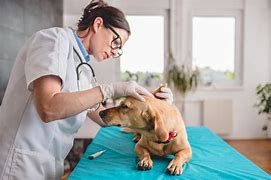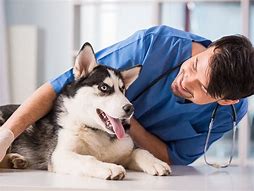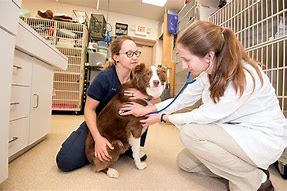Get the most from vet visits: what questions to ask and how
Ever get home from a vet visit and realize you aren’t really sure when to start that medication or what exactly the next step is for your pet’s treatment? Happens all the time. Here’s how to get the information you need.
When I worked as a veterinary technician many years ago, pet parents asked questions all the time, but rarely to the veterinarian. Folks often acted embarrassed, or waited to telephone from home hours or days after the appointment. Perhaps they felt intimidated by the doctor or feared their questions were dumb. Maybe the busy schedule of the clinic offered little opportunity to ask.
Whatever the reason might be, remember that there are no stupid questions when it comes to your beloved cat and dog. As your pet’s top advocate, it’s up to you to arm yourself with expert advice and information to provide the best care possible. Here are some tips to be fear free when asking your vet questions.
Why You Should Ask Your Vet
My career as a veterinary technician began long before “Dr. Google” or “Alexa” answers. Today, some pet parents rely too much on the Internet to answer questions or only seek the opinions of friends. Even though I am not a vet, I often am asked pet health or care questions. Here’s what I say when ask about pet health or care concerns.
While some online resources like vet schools are terrific, they can offer only very general information and nothing specific about your pets. Your veterinarian has personally examined your dog and cat, possibly run additional tests, knows what treatments have already been tried, and has the most specific and detailed information available.
When To Ask Your Vet
The veterinarian may have a busy schedule, so plan ahead for your questions. The best time to ask questions is at the beginning of the exam. Ask follow-up questions at the end of the visit before the doctor leaves the room.
If you’ve researched from the Internet or friends, you may think you know what’s needed, but ask anyway. Your pet is unique and could have very different needs than Aunt Freda’s dog’s. Once the doctor has examined your pet and explained any treatment, be sure to ask for any necessary clarification before you leave the clinic.
How To Ask Your Vet
Very often it’s not what you ask, but how you ask that gets the most out of your veterinary visit. The staff may become frustrated by pet parents who base questions solely on “Dr. Google” research that may not be applicable or that could be dangerously wrong.
That said, veterinarians want pet parents to be invested in caring for their cats and dogs. Recognize that the doctor and many of the staff studied for many years to attain the expertise to offer medical advice and care. You know when something’s “off” about your pet—but the vet has the tools and ability to figure out the cause and what to do about it.

Preparing for your visit
Preparation before your first visit to the veterinarian can make all the difference. While you may be taking mental notes before your visit, writing down any questions or concerns you may have is a great way to make sure you don’t forget anything.
In these notes, be specific. Write down specific food and treat brands you are feeding your pet, along with the quantities – because telling your veterinarian that you feed your pup a “handful” of dog food doesn’t tell very much!
If this visit goes beyond a routine checkup, write down all symptoms you notice in your pet and any medication your pet may be taking. Takes notes on your pet’s water drinking habits, appetite, energy level, or any behavior that may be unusual.
If you have a pet going to the veterinarian for the first time, contact them ahead of time to determine if you will need to bring in a stool sample for a fecal exam.

Dog and Cat Questions to Ask the Vet
For your first vet visit, it’s important to have questions prepared to ask before the big day. Not only is this extremely helpful to you and your pup but it will give you the most out of your visit. Vets are very busy and have several patients so they won’t always have the answers you anticipate. Don’t be afraid to write these questions down, as your vet is a valuable resource to your pet’s health and to your peace of mind. Here are some helpful questions to prepare:
- Is my pet a healthy weight?
- Are they eating the right food and getting proper nutrition?
- Are they sleeping too much or too little?
- What resources are available at this vet clinic? (ex. X-rays, labs, etc.)
- Are there any common parasites or pests in the area? How can I prevent them?
- Is pet insurance worth it and if so, who do you recommend?
- Do you have any grooming recommendations for my cat or dog?
- Are there any vaccinations my pet needs?
- Where are the nearby emergency services for off-hours or holidays?
- What do you recommend for flea and tick prevention?
- Is spaying/neutering right for my pet?
- How is my pet’s dental health?
- Any pet food label questions such as how to read them, what to look for, etc.
The first vet visit is a pivotal experience for new pets and owners. It’s important to be prepared in advance and to create a cool and relaxing situation for you and your pet. Hopefully, these questions and tips help you and your dog or cat make the most of your first vet visit.

Then I came home and realized how many things I forgot to ask or mention.
You can do that only so many times before you realize that perhaps you should get better prepared. I started making notes beforehand, making lists, tracking symptoms. Today, I would not go unprepared. The more you have your sh*t together, the better value you get out of the visit.
How to prepare when visiting your regular veterinarian
Make a list of all your concerns. If you have the time, start a day or two beforehand; you’d be surprised how many times you’ll go back to add things. I put down everything that is bothering me, however trivial it might seem. You never know what’s important and what is not.
Your list should include
- all symptoms and signs you observed
- when it all started or how it all happened
- how often does it happen and how long it lasts
- when it usually happens (daytime, nighttime, after exercise …)
If the symptom is intermittent, bring evidence
Many times your dog might be limping, showing other signs of pain and act perfectly fine when at the vet’s office. It’s not unusual. As the adrenaline gets going it can mask many symptoms. Other things just happen only from time to time. If you can, videotape the concerning behavior. It is much easier to show than trying to explain or re-enact.
If your dog has diarrhea or vomits, bring a sample. Bring a urine sample. Ideally, you want first-morning pee but you also want the sample to be fresh. Come clean to your vet when you collected your samples and how and how you stored them.
If symptoms are chronic, chart them
With an ongoing issue, I like to keep a visual chart. I include the symptom(s) in question as well as other details and things that I figure might influence what’s happening. Jasmine’s chart got quite elaborate. You can keep a diary too but I find that a visual chart allows seeing any progress, decline or correlations in a glance. It is much easier to glean some information that way.